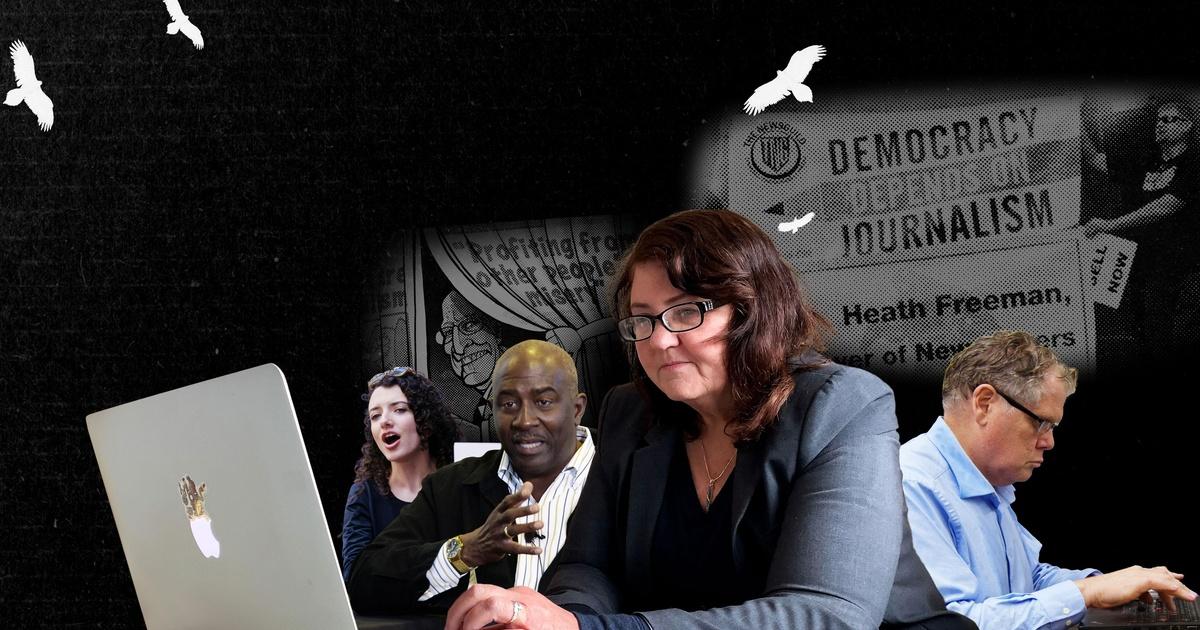I’m Luke DiStefano and I’ll be helping Mark with the newsletter for a while. I’m a student at The College of New Jersey majoring in Journalism & Professional Writing, with a minor in Creative Writing. Outside of this newsletter, I am the Nation & World editor at The Signal newspaper, and I am a published poet—with my poetry collection “the gentlemen gallery” available on Amazon.
On this episode of The Journalism Salute, Mark Simon spoke to Rick Goldsmith, the director of “Stripped for Parts: American Journalism on the Brink,” a documentary about Alden Global Capital, how it has wrecked newsrooms, and what is being done to combat it.
The film is available to stream now on PBS.
The narrative of the documentary is that journalism is not so much being outclassed by more modern means of news sharing, but rather, local journalism is being targeted and murdered by opportunistic businesses, such as Alden.
This is done through an economic strategy referred to as vulture capitalism, or vulture investing—which consists of opportunistic investors swooping in and buying up distressed businesses when they’re in vulnerable economic positions.
As the name of the documentary suggests, companies are killing hometown papers for spare parts.
As a burgeoning journalist myself, my reaction to the documentary wasn’t so much surprise as it was reckoning. While the most capitalistic parts of the industry hardly faze me, as all industries have them, it was more so the local harm that the loss of these papers caused that unsettled me.
According to the documentary, 2,000 American newspapers vanished in the decade following 2009’s original decline—with the investors allegedly responsible for this taking no interest in managing the papers’ finances in a way that allows for long-term stability. It’s almost like vampirism really, with the intent being to suck these papers dry and move onto the next, leaving these local towns without a local paper.
It’s not exactly something one often consciously thinks about, but, well, think about it. Who realistically has the spare time to attend local town hall meetings? When federal politics are as divisive as they are, and life is as busy as it is, if you’re not getting the information shared in those meetings presented to you, you’re most likely not going to encounter it.
And what happens when a public is uninformed of things they would otherwise stand up against? Well those propositions and budget plans get passed without pushback. Local papers, like the ones targeted by this scheme, are the biggest portal the average citizen has into local politics—and losing that practically leaves local areas to run without any form of concerned public to worry about.
If there’s one thing both journalism and history have taught me, it’s that any government without any pushback is never a good thing.
The other part about this that’s arguably even more concerning to me as a journalist is the pure conflict of interest involved. What happens when journalists can’t tell stories because money gets in the way?
Of course, like I said before, journalism is an industry at the end of the day. And, like all industries, profit is always good. Except, that’s not fully true, when journalism is the conduit through which all long-lasting societies stay uncorrupt. Journalism, many argue, is a moral duty.
So what then? What happens if those investors are financially involved with some corrupt company and kill any stories proposed about them? What happens when a particular beat isn’t proving profitable—beats like local town hall meetings—so they stop reporting on it?
At the end of the day journalism is an industry, but simultaneously, it is also a moral act with principles and lines we’re not supposed to cross. While the balance between the two is a near impossible one to straddle, the consequence of not even trying can often lead to outcomes like this: a corporate scheme which will have negative ripple effects on the paperless towns for years to come.
Rick’s salutes: The documentaries No Other Land and Love + War
Make sure to listen to the episode all the way through. We also have an update from speech therapist Anita Pinto, who started a journalism club at at Urban Assembly Gateway School for Technology in New York City, who shared the growing success of the school's second-year newspaper.
Click here to listen to Anita's appearance on the podcast a month ago


